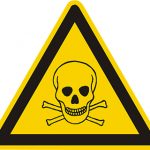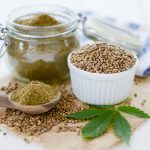Strawberry Contamination Suspect Refused Bail

A Queensland woman who is alleged to have triggered the national strawberry crisis has been refused bail and remains behind bars.
The Queensland Police Service (QPS) charged 50-year old My Ut Trinh after a national investigation involving several government, law enforcement and intelligence agencies.
Ms Trinh, also known as Judy, is understood to have been employed with Berrylicious at Caboolture between 2 and 5 September 2018 when, police allege, she inserted needles into the fruit because she was unhappy about her treatment at work.
Police further allege Ms Trinh’s DNA was found inside a contaminated punnet of strawberries in Victoria.
She faces seven charges of contaminating goods with intent to cause economic loss with aggravation under section 238 of the Criminal Code Act 1899 (QLD), which carries a maximum penalty of 10 years’ imprisonment.
Bail application withdrawn, bail refused
Ms Trinh appeared before Magistrate Christine Roney in Brisbane Magistrates’ Court, who noted the Crown was alleging she was “motivated by spite or revenge” over a workplace grievance.
Her Honour described the bail application as “premature”, suggesting the court required greater clarification of the reasons behind the alleged acts of retribution.
Ms Trinh’s criminal defence lawyer then withdrew the application, resulting in the formal refusal of bail
Ms Trinh will remain in custody until 22 November, when a formal bail application may be made.
How the crisis unfolded
The first needle was discovered on 9 September 2018, sparking a nationwide crisis which ultimately devastated the strawberry industry as supermarkets stopped selling fruits from a number of sources, and foreign companies withdrew orders.
230 incidents have been reported nationwide, affecting 68 strawberry brands. While strawberries were the first fruits to be affected, the crisis spread to other items.
There have been many reports of copycat crimes, including the case of a 62-year old woman who was allegedly caught putting a needle into a banana in Mackay, north Queensland. There was also the case of a 12-year old school girl allegedly seen inserting a needle into a strawberry at her Blue Mountains school.
The half a billion dollar Australian strawberry industry continues to be affected – with reports that some farmers will go bankrupt.
The QPS has called the investigation that led to the arrest of Ms Trinh as “major and unprecedented police investigation.”
It stressed that investigations are continuing into the suspected copycat crimes.
Commonwealth and NSW laws
Both NSW and commonwealth laws make it a criminal offence to contaminate goods, or threaten to do so, in certain situations.
Commonwealth laws
Section 380(2)(1) of the Criminal Code Act 1995 (Cth) currently prescribes a maximum penalty of 10 years’ imprisonment for any person who contaminates goods with intent to cause:
- public alarm or anxiety in Australia; or
- widespread, or nationally significant, economic loss in Australia through public awareness of the contamination, or possible contamination, of the goods; or
- harm to, or create a risk of harm to, public health in Australia.
Section 380(2)(2) imposes the same maximum penalty for anyone who causes loss to a constitutional corporation, or to constitutional trade or commerce, by contaminating goods with intent to cause:
- public alarm or anxiety; or
- economic loss through public awareness of the contamination, or possible contamination, of the goods.
Section 380(3) and 380(4) respectively prescribe the same maximum penalty for threats to contaminate goods and making false statements about contaminating goods.
The federal government is proposing to increase the maximum penalty for food contamination from 10 to 15 years.
It also intends to introduce a new offence of “recklessness” which will carry a maximum penalty of 10 years. Creating this law which does not require proof of “intent” will make it easier to convict those suspected of the crime.
The definition of “sabotage” in the Espionage and Foreign Interference Act 2018 (Cth) would also be amended to include goods intended for human consumption.
NSW laws
Part 3A, Division 3 of the Crimes Act 1900 (NSW) deals with contaminating goods in our state.
The Part begins with section 93J which defines ‘contaminate’ and ‘goods’.
Contaminate is defined to include interfering with goods, or making it appear that goods have been contaminated or interfered with.
Interfere is defined by section 154E of the Act as alter, deface, remove, obliterate, conceal or add.
Goods are broadly defined as any substance or article, whether or not:
- for human consumption,
- natural or manufactured, or
- incorporated or mixed with other goods.
Section 93K states that any person who contaminates goods with the intention of causing public alarm or anxiety economic loss through public awareness of the contamination is liable to 10 years’ imprisonment.
Section 93L and 93M respectively prescribe the same maximum penalty for anyone who threatens to contaminate goods or makes false statements regarding the contamination of goods with intent to cause public alarm or economic loss.
Section 93N increases the maximum to 14 years where a person makes an unwarranted demand – such as a demand for money or to cease stocking the goods – in connection with one of the above offences.
And section 93O imposes a 25 year maximum for a person who commits an offence under section 93K or 93L where death or grievous bodily harm is caused or intended to be caused.








